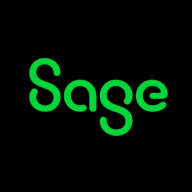

Sage CRM and Microsoft Dynamics 365 Customer Service compete in the CRM market. Microsoft Dynamics 365 Customer Service appears to have the upper hand due to its seamless integration within the Microsoft ecosystem and its customizable and automation workflows.
Features: Sage CRM stands out for its opportunity and lease management, robust finance features, and its capacity to track both customer and employee interactions. Its integration with Microsoft Office 365 adds significant flexibility. Microsoft Dynamics 365 Customer Service is appreciated for its customizable workflows and automation features, enabling seamless case management. Integration capabilities including Power BI and SharePoint strengthen its connectivity.
Room for Improvement: Sage CRM requires enhancements in email and social media integrations and needs to improve real-time reporting and synchronization across platforms. Users seek more modern analytics and export functionalities. Microsoft Dynamics 365 Customer Service's user interface could be improved for better scalability and technical support. Users find its licensing model confusing and experience occasional performance issues.
Ease of Deployment and Customer Service: Sage CRM offers deployment flexibility with on-premises and cloud options. Its technical support is satisfactory but could improve in responsiveness. Microsoft Dynamics 365 Customer Service is deployed across public clouds and is praised for its quick technical support. Microsoft's integration within its suite enhances user experience for enterprise users.
Pricing and ROI: Sage CRM is considered moderately priced, offering fair value for its robust functions, though some view it as expensive compared to alternatives. Users report a positive ROI. Microsoft Dynamics 365 Customer Service features a tiered model seen as competitive yet potentially confusing. Its ROI is viewed positively, reflecting its comprehensive feature set.
We are using local Microsoft partners, not Microsoft themselves.
The solution could improve by providing internal scorecards for agents and much better staff ratings.
We did our integration with sales automation and other tools internally, which incurred no additional costs beyond the standard licensing fees.
It has a workflow feature and offers excellent automation capabilities that streamline our customer service.


Microsoft Dynamics 365 Customer Service integrates seamlessly with Microsoft tools, offering cloud-based accessibility that enhances business processes and facilitates decision-making. Its customizable workflows and insightful reporting streamline operations for effective customer relationship management.
Microsoft Dynamics 365 Customer Service provides an extensive suite of features, including advanced case management, seamless connectivity, and a user-friendly interface. Cloud-based accessibility supports collaboration and automation, while built-in connectors like Power BI simplify data management. Regular updates enhance functionality and improve business processes. Areas for improvement include greater customization flexibility, smoother integration with enterprise systems, and better scalability. Enhanced dashboards and user-friendly components are also desired, alongside improved technical support and licensing clarity.
What are the key features of Microsoft Dynamics 365 Customer Service?In industries like manufacturing, energy retail, and IT, Microsoft Dynamics 365 Customer Service is employed for communication, collaboration, and sales management, supporting lead management, proposal tracking, and ticketing systems. Departments such as sales, finance, and HR leverage its capabilities for complaint management, inquiries, and operational support through secure cloud connections.
We monitor all CRM reviews to prevent fraudulent reviews and keep review quality high. We do not post reviews by company employees or direct competitors. We validate each review for authenticity via cross-reference with LinkedIn, and personal follow-up with the reviewer when necessary.